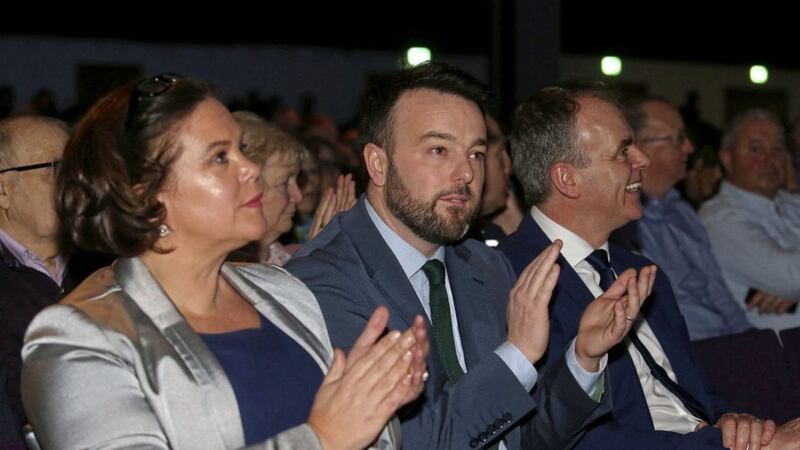So who, or what, is Ireland? Yes, Ireland - you know the country whose future is being planned by civic nationalists.
They packed into the Waterfront Hall last week in what appears to have been a Mise Éire (I am Ireland) contest to see who was the most Irish and who could therefore claim the greatest legitimacy in planning its future.
But it appears that although several of them spoke of Ireland's future, none of them said what they meant by Ireland. Planning for the undefined is a technique perfected by senior civil servants here (any answer you come up with is bound to be right). It probably goes against the ethos of such a fine tradition to query its reliability, but before the great and the good plan our future, we might reasonably raise three issues which need to be included in any definition of Ireland: nation, class and economy.
Ireland used to be a single nation consisting of Protestants, Catholics and Dissenters, until the SDLP decided that Wolfe Tone had got it wrong and the Protestants were really British. Sinn Féin, the claimed political descendants of Tone, agreed. Both parties, along with Fine Gael and Fianna Fáil supported an international agreement which enshrined their view in law and left the 1798 rebels wondering why they had bothered.
To prove the absurdity of civic nationalism's belief that Ireland consists of two nations, we might usefully turn to the Westmeath football team. One of their best players in the recent O'Byrne Cup final on TG4 was Boidu Sayeh. He arrived here aged eight, fleeing from Monrovia, Liberia, to Moate, Westmeath.
Boidu plays Gaelic football every week and no one says a word. Arlene Foster attends a single Gaelic football match and it is seen as a biblical moment, surpassed only by the Resurrection. So, a family recently arrived from Africa is Irish (and rightly so) but families which have been here from Scotland and England for 400 years are British.
Thus in civic nationalism's new Ireland, if you are black, you are Irish, but if you are in the Royal Black Preceptory, you are British. (Although with the four main nationalist parties represented in the Waterfront, including two party leaders, just how civic is civic nationalism?)
In terms of social and economic class, Ireland is an exceptionally divided society. The richest 10 per cent own 54 per cent of the wealth. Do civic nationalists propose to reverse this trend or will their new Ireland be just the same old Ireland, as Daniel O'Connell's nationalist revival so clearly illustrated.
Let's put it another way: will the homeless notice civic nationalism's new Ireland? Will the 30 per cent of children in poverty in Derry and north and west Belfast somehow be sprung from deprivation? Since hospital waiting lists increased significantly, north and south, under the four main nationalists parties, would they like to accept responsibility for helping to create the present unequal Ireland?
Inequality stems from economic policy and, sadly, all four nationalist parties support austerity. They all claim to oppose it, but since the Fiscal Compact Treaty in 2012, austerity has been official EU policy, which has left one quarter of its population in poverty. You cannot be pro-EU and anti-austerity. It is estimated that without EU austerity, the pro-Brexit vote would have been 10 per cent lower.
The EU's economic policy is Thatcherism on a grand scale. It offers big business low taxes, (a policy supported by all four parties), cuts public services (implemented by all four parties) and inevitably increases poverty and social deprivation (which none of the four adequately addressed while in office).
In fairness, Mary Lou criticised the EU in her speech, demanding that it should act for citizens and not the markets. But the EU is designed to facilitate the markets, as previously recognised by SF, when they used to call it a rich man's club. Mary Lou says SF will change the EU from within. Well, good luck with that one and maybe they will keep us updated on their progress.
If civic nationalism addresses nation, class and economy, it can be taken seriously as a movement intent on debating and maybe even creating a new Ireland. If it ignores those issues, and it probably will, it will consist of little more than flag protesters, pursuing de Valera's approach that labour (meaning the interests of ordinary people) must wait until the "national issue" has been resolved.
That never happened and the ordinary people are still waiting for a better life. The speeches in the Waterfront suggest that they will have to keep on waiting.









